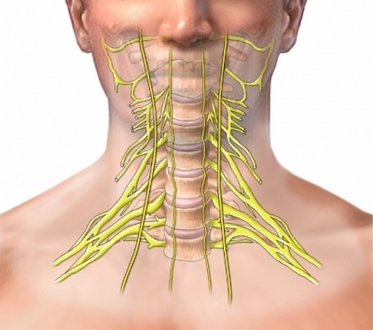Chest Pain – Mastalgïya
Description mastalgia
Mastalgïya – chest pain. There are two types of mastalgia: cyclic and non-cyclic. Cyclical breast pain is most often associated with menstrual periods. Acyclic chest pain not associated Menstrual.
Reasons mastalgia
Mastalgia may cause:
- Hormonal changes, associated with the menstrual cycle;
- Pregnancy;
- Chest injury;
- Arthritis in the chest cavity and neck;
- Mastitis (infection of the breast);
- Tromboflebit;
- Sprains chest;
- Pressure from bra;
- Festering hydradenitis;
- Drugs (eg, hormonal drugs, antidepressants, heart medications).

Factors mastalgia
Factors, which increase the likelihood of developing mastalgia:
- Breast surgery in the past;
- Have Arthritis;
- Irritation of cervical nerve roots;
- Big breasts.
Symptoms of mastalgia
Symptoms of mastalgia may include pain in the chest. The pain may range from mild to severe, in both breasts or in one. Soreness may be felt in only one place and across the chest.
When to see a doctor?
Visit your doctor, if you have any signs of infection, such as redness, soreness, fever, or chills.
Contact your doctor, If you notice any other changes in the breast, such as:
- Change the size or shape of the breast;
- Discharge from the nipple;
- Feeling seal or the presence of foreign mass in the breast;
- Changes in the skin on the chest, such as stiffness, ripple or wrinkling.
Contact your doctor, If chest pain persists, It interferes in daily life or felt in a specific area of breast.
Diagnosis mastalgia
The doctor will ask about your symptoms and medical history, and perform a physical exam. The diagnosis is most often placed in the presence of pain and the results of physical examination.
Your doctor may order further testing, to find suspicious changes in the breast tissue. Tests may include:
- Mammography;
- Ultrasonography;
- A biopsy of the breast.
Treatment mastalgia
If the main cause of the pain is found, treatment will be directed to that, to eliminate it (eg, antibiotics during infection). Treatment options include:
Medications
Nonsteroidal anti-inflammatory drugs (NSAIDs) It helps reduce pain, associated with mastalgia. To reduce cyclical mastalgia, They may be appointed danazol and other drugs.
If you are taking hormones (eg, estrogen, progesterone), your doctor may make changes to the schedule of medication, to reduce pain.
Other treatments for mastalgia
Your doctor may suggest to take some action, depending on the cause of chest pain. They may include:
- Using bra, which is well supported breasts;
- Avoiding caffeine;
- Consumption of foods with low fat;
- Reducing pain with a hot or cold compress.
Prevention mastalgia
The best way to prevent mastalgia – to avoid injuries to the chest. It is recommended to wear a sports bra while you exercise. This can also prevent breast pain and its sensitivity.
